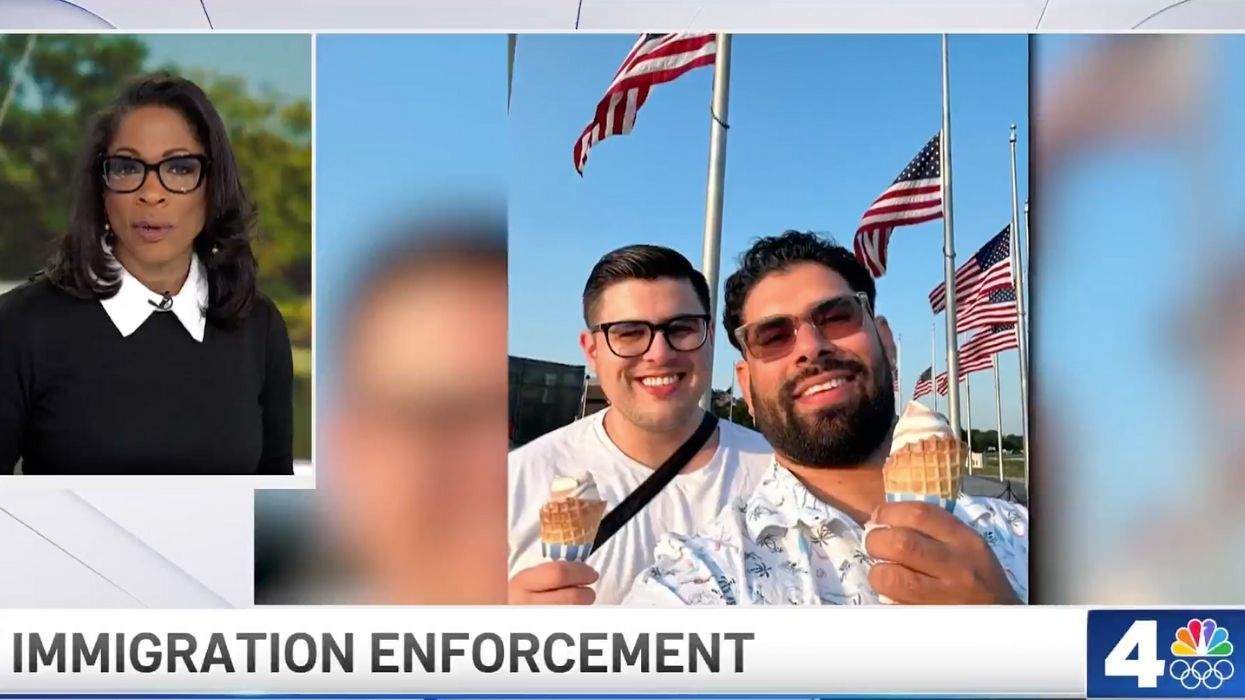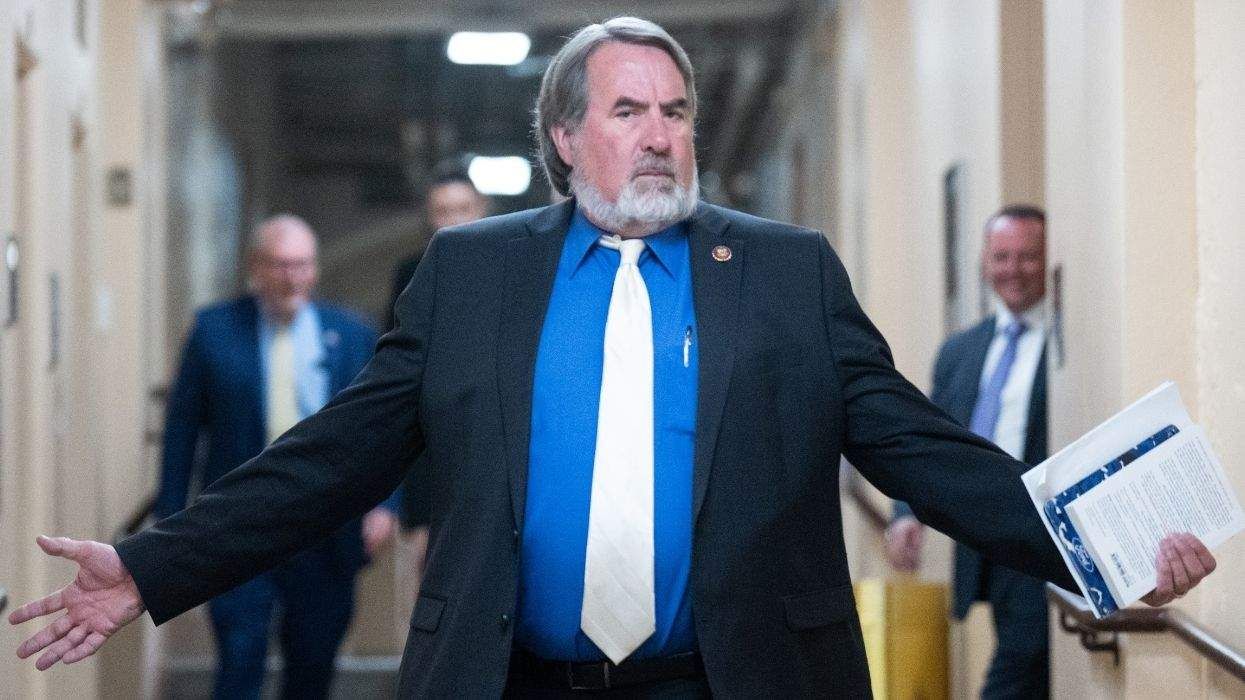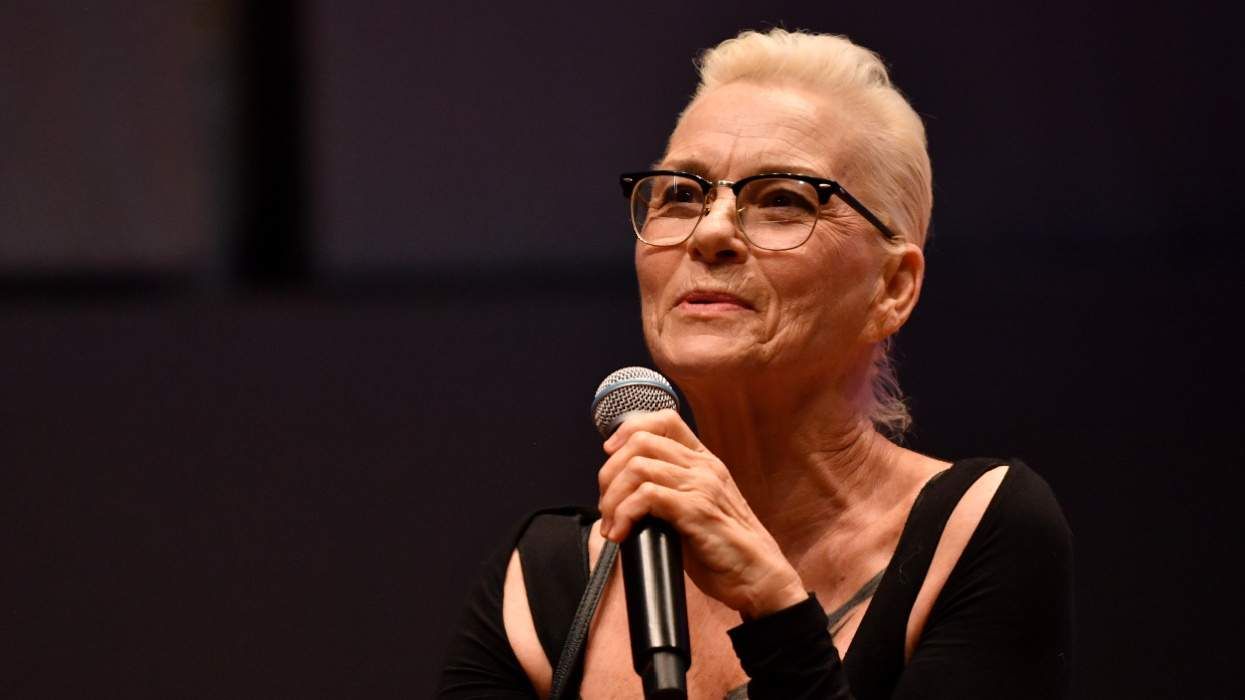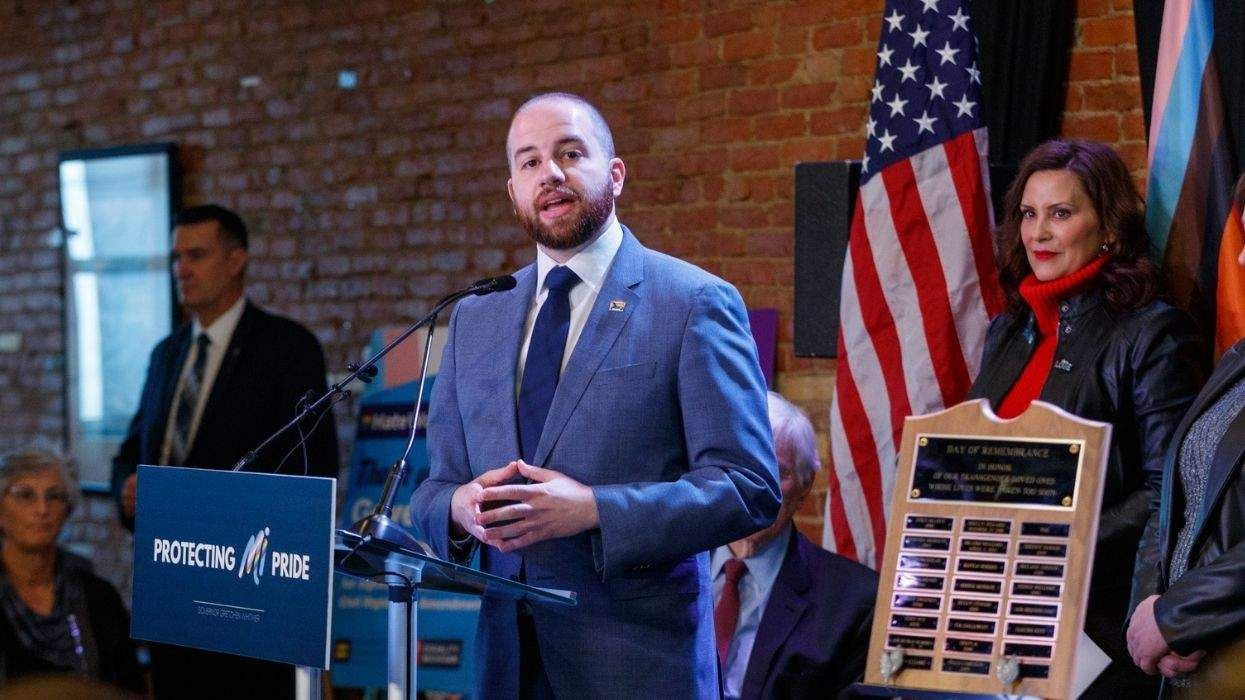Tyler McCubbin had been a substitute social studies teacher at Dowling Catholic High School in West Des Moines, Iowa, since last fall. He also volunteered as a sports coach. This spring, he applied for a full-time teaching job at the school.
As part of the hiring process, school administrators did a background check and what they call a "social media scan." The latter turned up something that disqualified McCubbin from employment at the school. It wasn't a criminal record or a fabrication on his resume. It was his engagement to marry another man.
McCubbin's case, reported in The Des Moines Register this month, is just the latest example of what might be characterized as an unintended consequence of marriage equality -- religiously affiliated institutions firing or deciding not to hire people who are engaged or married to a same-sex partner. In some cases these people are longtime employees whose homosexuality becomes an issue to their bosses only when they make a "public declaration" by marrying.
With the spread of marriage equality, such situations are likely to become more common. At present, 37 states and the District of Columbia allow same-sex marriages; in one other state, Missouri, some cities and counties have marriage equality. The U.S. Supreme Court will hear cases challenging marriage bans in four states April 28, and a favorable ruling could result in nationwide marriage equality.
Marriage equality advocates acknowledge that greater visibility of LGBT people can result in an increase in discrimination, at least in the short term. Some straight people "are comfortable with LGBT people in theory, but not when they are public about it," says Janson Wu, executive director of Boston-based legal group Gay and Lesbian Advocates and Defenders. And marriage is one way of being public about one's orientation.
"Any time there are civil rights advances and increased visibility ... we will have some adverse reactions," adds Evan Wolfson, founder and president of Freedom to Marry, who as a lawyer and activist has fought for LGBT rights, particularly marriage equality, for more than 20 years. That's not a reason for the marriage equality movement to back off, but it is a reminder that there will still be work to be done even when there are equal marriage rights nationwide, he says.
The "fired because you're married" (or engaged) situations raise an issue of competing rights. Obviously, churches have a right to their beliefs; that's a core American value and is protected by the First Amendment to the U.S. Constitution. But the gay rights movement has been working for years to fight job discrimination based on sexual orientation. Twenty-one states and dozens of municipalities ban such discrimination (fewer address gender identity). Religious institutions are generally exempt from these laws, to varying degrees. And the degree is what matters.
"It's obviously an area that's contested," says Wolfson. On the question of how broad religious exemptions from antidiscrimination law should be, Wolfson says the correct answer is that they should apply only to truly religious functions -- the hiring of clergy, for instance.
But many religious bodies operate schools, hospitals, social service agencies, banquet halls, and more, and some have asserted the right to discriminate against LGBT people in employment that doesn't directly involve religion.
In 2013, Fontbonne Academy in Milton, Mass., a college preparatory school operated by a Catholic religious order, offered Matthew Barrett the job of food service director. He was well qualified, having worked in food service at Boston's RFK Federal Building and in the Milton public schools. After accepting the job, he filled out routine paperwork, which had a section for him to list an emergency contact. He listed his husband -- and within a few days, Fontbonne rescinded the job offer. The reason, Barrett says, is that he was gay.
Barrett has taken his case to court. GLAD has filed a lawsuit on his behalf, charging that Fontbonne discriminated against him based on gender and sexual orientation "for a job that has nothing to do with religion," says Wu. The suit is pending in Massachusetts Superior Court.
Several other cases of "fired because you're married" around the nation have involved Roman Catholic institutions. Among those who've lost their jobs in these situations are Mark Zmuda, let go as assistant principal of a Seattle-area school; Colleen Simon, who ran a food pantry at a church in Kansas City, Mo.; Mark Bencomo, who taught at a school near Los Angeles; Tippi McCullough, who lost her teaching position in Little Rock; and Colin Collette, who'd been a music director at a Chicago-area church. There have been some cases at conservative Protestant institutions too. (The phenomenon also inspired a memorable fictional treatment in last year's acclaimed indie film Love Is Strange, starring Alfred Molina as a teacher who loses his job in a Catholic school after marrying his longtime partner, played by John Lithgow.)
Some of these people are, like Barrett, fighting back in court. Whether they will win depends on how broadly courts interpret religious exemptions -- if they should apply to clergy only or if teachers, musicians, and food pantry workers have "ministerial" positions. Wolfson says that he could perhaps understand a parochial school expecting a religion teacher to adhere to church dogma, but to keep a gay person from teaching a secular subject makes no sense.
Wu expresses a similar view. "The courts have struck a very careful balance between religion and nondiscrimination," he says. Some religious institutions want to see religious exemptions from nondiscrimination laws apply to a wider range of jobs, but "we should refuse to go down that road," Wu says.
Then there's the problem only a minority of states ban job discrimination against LGBT people, and no national law prohibits it. The Employment Non-Discrimination Act, in a variety of iterations, has been pending for decades in Congress, and last year GLAD, the National LGBTQ Task Force, the American Civil Liberties Union, and other organizations withdrew support for the latest version of the bill because it contained an overly broad religious exemption.
The Human Rights Campaign continued to support the last version of ENDA despite the broad religious exemption, because it "would have provided real and needed protections," says HRC legal director Sarah Warbelow. With a new Congress seated this year, a new ENDA must be introduced, and its exact language remains to be seen. She notes that Sen. Jeff Merkley of Oregon and Rep. David Cicilline of Rhode Island are working on a comprehensive bill that would address not only employment but other areas such as housing and public accommodations. The HRC has called for far-reaching legislation like this.
Of faith-based discrimination, she says, "We're very disappointed that religious institutions and religiously affiliated organizations are choosing to terminate long-term, beloved employees simply because they choose to marry their partner." But she adds that this is "a very complex area legally," as "there isn't a clear-cut solution for all these individuals other than the religious institutions changing their hearts and minds."
Changing hearts and minds is difficult, but there are several mainline Christian denominations -- the Episcopal Church, Presbyterian Church (USA), Evangelical Lutheran Church in America -- that have no problem with partnered gay employees, including clergy, and the same goes for Reform and Conservative Judaism. And LGBT activists and allies are fighting for equality within many other faiths.
Where legal solutions are concerned, legislation is not the only way to go; litigation is another means to fight discrimination, says Wu. He would love it if a strong ENDA were to pass tomorrow, he says, "but we're not willing to wait while people are being fired today." GLAD, he notes, has filed suits seeking redress for sexual orientation or gender identity discrimination under not only laws that ban those types of bias, but state and federal laws banning sex discrimination.
And no one is saying the solution is to avoid taking advantage of marriage equality laws. Wolfson points out that the problem is discrimination, not marriage, and that throughout history, whenever there's been a civil rights advance, opposing forces have sought to block or subvert that advance. "I don't think it's smart to think of it as a new thing," he says. He adds that while increased visibility may bring adverse reactions in the short term, it brings progress in the long term -- helping to change those hearts and minds.
But as lawyers litigate and activists advocate for better laws, some religious institutions continue to discriminate against employees or applicants in same-sex marriages. Some of those who've encountered such discrimination say they hope something good can come out of the situation. McCubbin, for one, hopes for further discussion of discrimination and religion, but he sees no religious justification for discrimination, which, he says, primarily targets LGBT people.
"If the 'sin' that I possess as a gay man who is in a committed, monogamous relationship with another man is too great for the church to overcome, then why is the person who has been married more than once, or the person who has had an affair during a previous marriage, not held to the same standard as myself?" he tells The Advocate via email.
"We have to ask ourselves as Christians every day if Christ would admire the society that he created," McCubbin continues. "I believe that if he were here today, he would love every single person who has found love in another person, regardless of who they are or who they love. ... He would ask us to stop using the movement that he started to persecute others."
McCubbin, who is still looking for a job, says he's worried about LGBT students at Dowling facing bullying and intolerance, but he notes that he's received much support from a broad cross section of students (they staged a protest over the rejection of his application), and that gives him hope for the future. "I believe that the students at Dowling Catholic will continue to push their school administrators to allow the creation of an LGBTQA Alliance so that students feel safe in its walls, he says. "I believe that this generation of students that are going through Dowling are going to pave the way for future generations, and are going to make sure that justice is served, with Christ centered on their hearts."















Charlie Kirk DID say stoning gay people was the 'perfect law' — and these other heinous quotes
These are some of his worst comments about LGBTQ+ people made by Charlie Kirk.